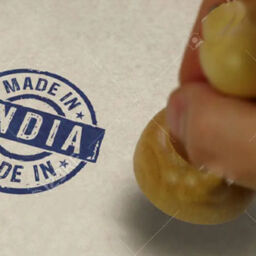Amid fierce international competition in a rapidly transforming global economy, #India must brand itself aggressively by marketing all its strengths and capabilities…that would serve both our economic & other national interests..

India should carve out a position for itself in people’s perceptions that would serve our economic and other national interests.
How do we decide our next travel destination? How does an investor end up investing in a particular country or region? Or what do such expressions as “I love NY”, “Vive la France”, “Brasil—sensational” or “Made in Germany” connote? We always associate some things with a particular country or place: for instance, Swiss watches, Italian food, French perfumes, German cars, and so on. In recent years, country or national branding has emerged not only as a distinctive field in marketing and communication, but making headways in international diplomacy as well.
Country Branding: In a typical sense, branding is a process of identity creation. A country or nation is a complex cultural, political, social and historical entity. Hence, country branding is a very careful exercise whereby countries gain visibility and put themselves on the world map as distinctive entities by drawing on their history, culture, economy, society, geography and their people. Often, this exercise is aimed at establishing a country’s uniqueness in the global order, where there is intense and sometimes ruthless competition among countries over resources, values and also prestige. In other words, it serves as a tool to attract tourism, investments and high-quality human capital, as well as to forge financial, military, social and political alliances.
Brand India: In the medieval period, India had developed its own identity as the largest producer and exporter of spices. To a certain extent, this image attracted imperialist powers to attack and colonize India. It resulted in the ruination of India’s identity along with its economy, while also rupturing the country’s socio-cultural fabric. Sadly, during the British Raj, India’s image abroad was shaped by portrayals of it being a land of snake charmers. Even after independence, Dixon Owen, in his book The Great Divide, described India as “a wrecked ship, standing in the mid-ocean, armed and ammunition stored in and set on fire.” However, our founding fathers not only proved this wrong, but built a strong and resilient foundation on which today’s India stands tall.
Where does India stand? : The modern world pivots around democratic values, economic strength, trade, food production, technology, environmental concerns, security and culture. Within just 75 years of independence, India has not just made its mark but achieved a respectable reputation in each field. We are the world’s largest, most diverse and arguably resilient democracy.
Democracy: There are about 63 countries that gained freedom from foreign rule in the 20th century. India is only among a handful of countries in which democracy has not only flourished but deepened in every aspect.
Economy: India is the fifth largest economy in US dollar terms in the world and the third largest in purchasing-power-parity terms. We have one of the globe’s largest and fastest expanding consumer markets. After the economic shrinkage caused by the covid pandemic, India has emerged as the fastest-growing economy among G-20 countries.
Food Production: India is among the largest producers and consumers of food in the world.
Environment: We are the fourth largest emitter of greenhouse gases and a major voice at meetings of the United Nations Framework Convention on Climate Change.
A responsible military power: We have fought four major wars, have become nuclear-capable, with a no-first-use policy, and look forward to a permanent seat at the United Nations Security Council. India’s position in the global fight against terror is well respected around the world.
Technology: We have proven ourselves in modern technology, particularly information and space technology.
Civilization, Culture and Religion: Mark Twain famously said that “India is the cradle of the human race, the birthplace of human speech, the mother of history, the grandmother of legend, and the great grandmother of tradition.”
Amid fierce international competition in a rapidly transforming global economy, India must explicitly brand itself aggressively by marketing all its strengths and capabilities. For instance, Israel adopted this technique long ago with an extremely professional multi-pronged approach. Looking at the recent success of Israel’s diplomacy (consider the signing of the Israel-UAE Normalization Agreement in 2020 as one among other examples), such careful identity creation must have played a pivotal role. From Israel’s example in recent times, one can infer that national branding on the world stage not only attracts business, tourism and investment, but could also help in fostering harmonious relations for the cause of peace.
India is at an inflection point right now. With a post-pandemic K-shaped economic recovery, the Indian administration is driven by the mantra of “maximum governance, minimum government”, combined with rapid infrastructure development and a technology-powered transformation. Most importantly, we have the world’s largest young population. Harnessing their aspirations, skills and consumption capacity will not just help power Brand India, but, with the requisite dedication and effort, such an exercise may eventually help reshape the world.


